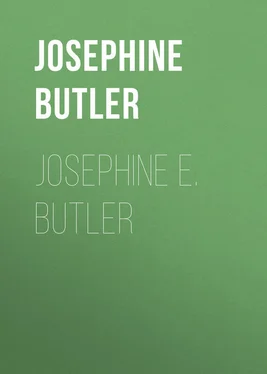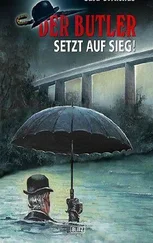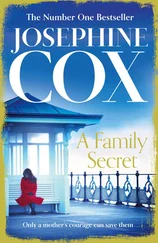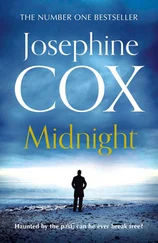Josephine Butler - Josephine E. Butler
Здесь есть возможность читать онлайн «Josephine Butler - Josephine E. Butler» — ознакомительный отрывок электронной книги совершенно бесплатно, а после прочтения отрывка купить полную версию. В некоторых случаях можно слушать аудио, скачать через торрент в формате fb2 и присутствует краткое содержание. Жанр: foreign_antique, foreign_prose, на английском языке. Описание произведения, (предисловие) а так же отзывы посетителей доступны на портале библиотеки ЛибКат.
- Название:Josephine E. Butler
- Автор:
- Жанр:
- Год:неизвестен
- ISBN:нет данных
- Рейтинг книги:5 / 5. Голосов: 1
-
Избранное:Добавить в избранное
- Отзывы:
-
Ваша оценка:
- 100
- 1
- 2
- 3
- 4
- 5
Josephine E. Butler: краткое содержание, описание и аннотация
Предлагаем к чтению аннотацию, описание, краткое содержание или предисловие (зависит от того, что написал сам автор книги «Josephine E. Butler»). Если вы не нашли необходимую информацию о книге — напишите в комментариях, мы постараемся отыскать её.
Josephine E. Butler — читать онлайн ознакомительный отрывок
Ниже представлен текст книги, разбитый по страницам. Система сохранения места последней прочитанной страницы, позволяет с удобством читать онлайн бесплатно книгу «Josephine E. Butler», без необходимости каждый раз заново искать на чём Вы остановились. Поставьте закладку, и сможете в любой момент перейти на страницу, на которой закончили чтение.
Интервал:
Закладка:
The following extract from one of Josephine Butler’s last letters, written to friends in Switzerland in 1905, tells how her “travail of soul” on behalf of oppressed womanhood began at an early age when she was only seventeen.
My father was a man with a deeply rooted, fiery hatred of all injustice. The love of justice was a passion with him. Probably I have inherited from him this passion. My dear mother felt with him, and seconded all his efforts. When my father spoke to us, his children, of the great wrong of slavery, I have felt his powerful frame tremble and his voice would break. You can believe, that at that time sad and tragical recitals came to us from first sources of the hideous wrong inflicted on negro men and women. I say women, for I think their lot was particularly horrible, for they were almost invariably forced to minister to the worst passions of their masters, or be persecuted and die. I recollect the story of a negro woman who had four sons, the sons of her master. The three eldest were sold by the father in childhood for good prices, and the mother never knew their fate. She had one left, the youngest, her treasure. Her master, in a fit of passion, one day shot this boy dead. The mother crawled under a ruined shed of wood, and with her face to the earth she prayed that she might die. But first she prayed, for she was a Christian, that she might be able to forgive her cruel master. The words, “Love your enemies, bless them that curse you,” sounded in her heart; and she cried to heaven, “Jesus, help me to forgive!” And so she died, her poor heart broken. I remember how these things combined to break my young heart, and how keenly they awakened my feelings concerning injustice to women through this conspiracy of greed of gold and lust of the flesh, a conspiracy which has its counterpart in the white slave owning in Europe.
Something of her struggles at this period is shown in the following memories, recorded in 1900.
My early home was far from cities, with parents who taught by their lives what true men and women should be. Few “priests or pastors” ever came our way. Two miles from our home was the parish church, to which we trudged dutifully every Sunday, and where an honest man in the pulpit taught us loyally all that he probably himself knew about God, but whose words did not even touch the fringe of my soul’s deep discontent.
It was my lot from my earliest years to be haunted by the problems which more or less present themselves to every thoughtful mind. Year after year this haunting became more tyrannous. The world appeared to me to be out of joint. A strange intuition was given to me whereby I saw as in a vision, before I had seen any of them with my bodily eyes, some of the saddest miseries of earth, the injustices, the inequalities, the cruelties practised by man on man, by man on woman.
For one long year of darkness the trouble of heart and brain urged me to lay all this at the door of the God, whose name I had learned was Love. I dreaded Him – I fled from Him – until grace was given me to arise and wrestle, as Jacob did, with the mysterious Presence, who must either slay or pronounce deliverance. And then the great questioning again went up from earth to heaven, “God! Who art Thou? Where art Thou? Why is it thus with the creatures of Thy hand?” I fought the battle alone, in deep recesses of the beautiful woods and pine forests around our home, or on some lonely hillside, among wild thyme and heather, a silent temple where the only sounds were the plaintive cry of the curlew, or the hum of a summer bee, or the distant bleating of sheep. For hours and days and weeks in these retreats I sought the answer to my soul’s trouble and the solution of its dark questionings. Looking back, it seems to me the end must have been defeat and death had not the Saviour imparted to the child wrestler something of the virtue of His own midnight agony, when in Gethsemane His sweat fell like great drops of blood to the ground.
It was not a speedy or an easy victory. Later the conflict was renewed, as there dawned upon me the realities of those earthly miseries which I had realised only in a measure by intuition; but later still came the outward and active conflict, with, thanks be to God, the light and hope and guidance which He never denies to them who seek and ask and knock, and which become for them as “an anchor of the soul, sure and steadfast.”
Looking my Liberator in the face, can my friends wonder that I have taken my place, (I took it long ago) – oh! with what infinite contentment! – by the side of her, the “woman in the city which was a sinner,” of whom He, her Liberator and mine, said, as He can also say of me, “ this woman hath not ceased to kiss My feet.”
CHAPTER II.
OXFORD
No record of Josephine Butler’s life would be at all true or complete which did not include some account of her husband. His strong and gentle spirit greatly influenced and aided her in all her public work, not only with whole-hearted sympathy, but with active co-operation whenever he had leisure from his other duties. The following pages are taken from her Recollections of George Butler .
In visiting some great picture gallery, and passing along amidst portraits innumerable of great men – of kings, statesmen, discoverers, authors or poets – I have sometimes been attracted above all by a portrait without a name, or without the interest attaching to it of any recorded great exploit, but which, nevertheless interests for its own sake. Something looks forth from those eyes – something of purity, of sincerity, of goodness – which draws the beholder to go back again and again to that portrait, and which gives it a lasting place in the memory long after many other likenesses of earth’s heroes are more or less forgotten. It is somewhat in this way that I think of a memorial or written likeness of George Butler, if it can but be presented with a simplicity and fidelity worthy of its subject. His character – his singlemindedness, purity, truth, and firmness of attachment to those whom he loved – seem to me worthy to be recorded and to be had in remembrance.
M. Fallot, in the Revue du Christianisme Pratique , sketches in a few words the character of the revered teacher of his youth, Christophe Dieterlin, whose mortal remains rest beneath the hallowed soil of the Ban de la Roche, in the Vosges, surmounted by a rock of mountain granite – a suitable monument for such a man. When his pupil questioned him concerning prayer, he replied: “The Lord’s Prayer is in general sufficient for me. When praying in these words, all my personal preoccupations become mingled with and lost in the great needs and desires of the whole human race.” “He was a Christian,” says M. Fallot, ” hors cadre , refractory to all classification, living outside all parties,” a child of Nature and a son of God. These words might with truth be applied to the character of George Butler. It would be difficult to assign him a definite place in any category of persons or parties. He stands apart, hors cadre , in his gentleness and simplicity, and in a certain sturdy and immovable independence of character.
George Butler was born at Harrow on the 11th of June, 1819. He was the eldest son of a family of ten – four brothers and six sisters. Nothing very remarkable in the way of hard study or distinction can be recorded of him during his school career. When questioned in later life concerning any excellency he attained there, he would answer, reflectively, that he was considered to be extremely good at “shying” stones. He could hit or knock over certain high-up and difficult chimney-pots with wonderful precision, to the envy of other mischievous boys, and I suppose to the annoyance of the owners of the chimney-pots. His father, the Dean of Peterborough, wrote to me in 1852: “Your references to George’s early days make me feel quite young again. He certainly was a nice-looking boy, and had a pretty head of hair; at least I thought so, and the remembrance of those nursery days is pleasant to me. But oh! those early experiments in the science of projectiles upon the chimney-pots of the Harrovian neighbours – why remind me of them, unless you are yourself possessed of the same spirit of mischief?”
Читать дальшеИнтервал:
Закладка:
Похожие книги на «Josephine E. Butler»
Представляем Вашему вниманию похожие книги на «Josephine E. Butler» списком для выбора. Мы отобрали схожую по названию и смыслу литературу в надежде предоставить читателям больше вариантов отыскать новые, интересные, ещё непрочитанные произведения.
Обсуждение, отзывы о книге «Josephine E. Butler» и просто собственные мнения читателей. Оставьте ваши комментарии, напишите, что Вы думаете о произведении, его смысле или главных героях. Укажите что конкретно понравилось, а что нет, и почему Вы так считаете.












